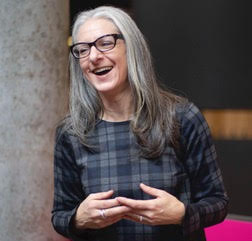March 2, 2021
12 PM EST
Online Webinar
This panel explores the concept of feminist economics and its place in economic recovery in the age of COVID-19. We discussed how gendered analysis can enhance and improve economic policies and strategies for economic recovery. The first part of the panel covered the concept of gender-responsive economic theory and approaches to economic policy. The latter part explored the integration of feminist approaches in plans for economic recovery from the effects of the COVID-19 pandemic.
Moderator
Paola Silva

Paola Silva is an Economist with a minor in Political Science and Development Studies from the Universidad de Los Andes. She has a Master’s in Public Policy from the same university. Her professional career has focused on defending women’s rights as a gender advisor in Colombia’s Congress, consulting firms, and local governments. Paola coordinated the first Summer School in Gender and Economics in Colombia at the Pontificia Universidad Javeriana.
For several years, she has been a member of the Global Shapers – Hub Bogotá of the World Economic Forum and One Young World ambassador. She is the co-founder and writer for SietePolas, a collective blog in Spanish exploring gender issues from different perspectives and experiences. For the past two years, she has specialized in writing, and building activism on women’s political participation in Colombia and the positions of power women occupy in society.
She is presently a MALD student at the Fletcher School concentrating on Gender in International Affairs and Security Studies.
Panelists
Khara Jabola-Carolus

Khara Jabola-Carolus is the Executive Director of the Hawai’i State Commission on the Status of Women, a government agency in the United States dedicated to restoring the venerated status of women, femme-identified and non-binary people. Khara is the only millennial to direct a statewide government agency in Hawaii. Previously, she led the Hawaii Coalition for Immigrant Rights where she passed landmark legislation that extended driver’s licenses to undocumented immigrants. She earned her Juris Doctor from the University of Hawai`i with a specialization in Native Hawaiian law and has performed fellowships at the United States Senate, Hawaii Supreme Court, and Committee to Protect Journalists. Her family is from Laguna, Philippines.
Sarah Kaplan

Sarah Kaplan is Distinguished Professor, Director of the Institute for Gender and the Economy (GATE), and Professor of Strategic Management, at the University of Toronto’s Rotman School of Management. She is a co-author of the bestselling business book, Creative Destruction. Her latest book—The 360° Corporation: From Stakeholder Trade-offs to Transformation—is based on her award-winning course at the Rotman School. Her current research focuses on applying an innovation lens to social challenges such as gender inequality. She was a strategic lead in developing the Feminist Economic Recovery Plan for Canada. In 2020, she launched a 5-course Specialization on Coursera: Gender Analytics: Gender Equity Through Inclusive Design which is aimed at building analytical skills to do intersectional gender-based analysis for products, services and policies. Formerly a professor at the University of Pennsylvania’s Wharton School (where she remains a Senior Fellow), and an innovation specialist for nearly a decade at McKinsey & Company, she earned her PhD at MIT’s Sloan School of Management. She has a BA with honors in Political Science from UCLA and an MA with distinction in International Relations and International Economics from Johns Hopkins University’s School for Advanced International Studies (SAIS). More information at: @sarah_kaplan and https://sarahkaplan.info/.
Lebohang Liepollo Pheko

Ms. Lebohang Liepollo Pheko is an activist scholar, public intellectual, senior strategist & international movement builder. Her research Interests are in Afrikan political economy, States& nationhood, international trade & global financial governance, feminisation of poverty, regional integration and impacts of globalisation on labour migration.
Pheko is the Senior Research Fellow at research and policy advocacy think tank – Trade Collective and has taught International Trade and developed a course on Afrikan Feminism. She has also taught at universities in Mexico, Sweden, Kenya , the UK, Zambia , Germany and the US and has lived and worked across 42 countries.
Her work is grounded in a race, class and feminist analysis and Pheko is committed to grounding academic research in community struggles& contexts. Board member of several academic and development organisations including International Network on Migration and Development and Well Being Economy Research Network, African Trade Practitioners, Network of Women Economists, South African Women in Dialogue. In this capacity Ms. Pheko has participated at several international fora including as the leader of the delegation to the World Trade Organisation, World Bank meetings, UN meetings, SADC meetings, has twice addressed the European Parliament and the United Nations Assembly. She was recognised by the Mail & Guardian as one of the 300 outstanding leaders across sectors . She has contributed to several books on international trade, international development, politics and feminists studies. She is considered a leading exponent on the African Political Economy, International Trade and African development. Pheko has written over a hundred articles & conference papers on these issues as well as regional integration, international relations, migration, public & development policy, economic citizenship and women in leadership.
